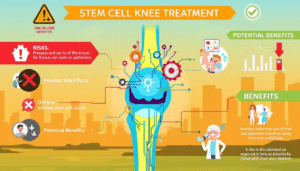Embarking on the journey of stem cell therapy for a meniscus tear repair unveils a promising realm of regenerative medicine capabilities. This innovative approach harnesses the potential of derived mesenchymal stem cells, leveraging the body’s natural healing mechanisms to address meniscus injuries.
Mesenchymal stem cells, known for their transformative capabilities, play a key role in promoting tissue repair and regeneration. As individuals explore stem cell treatments for meniscus tears, the focus shifts to the extraordinary potential of these stem cells in fostering recovery and restoring optimal joint function. In meniscus tears, the utilization of synovial mesenchymal stem cell emerges as a promising avenue for regenerative therapy.
Stem Cell For Meniscus Tear & Meniscus Regeneration

Stem cell therapy for a meniscus tear repair is a cutting-edge medical approach that involves using special cells called mesenchymal stem cells to help the body heal and repair damaged meniscus tissue. These cells are known for their ability to transform into different types of cells (known as cell differentiation) and promote the natural healing process.
The therapy aims to address injuries to the meniscus, a cartilage in the knee, by encouraging tissue repair and regeneration. It represents an advanced treatment option for individuals seeking to enhance recovery and restore optimal function in the knee joint.
Stem cell therapy for meniscal tears involves the use of specialized cells to aid in the healing of a damaged meniscus in the knee. This innovative approach harnesses the regenerative potential of stem cells derived from the patient’s own body, typically from bone marrow. They may also be purchased from a professional medical lab.
The goal is to promote natural tissue repair, reduce inflammation, and enhance the overall healing process of the meniscus, a crucial cartilage structure in the knee joint. Stem cell therapy for meniscus tears represents an evolving and promising alternative to traditional treatments, aiming to improve outcomes and potentially restore optimal knee function.
Is Meniscus Regeneration Possible with Stem Cell Therapy?

Meniscus regeneration through stem cell therapy represents a significant stride in orthopedic research. The meniscus has limited inherent regenerative capacity due to its sparse blood supply. Stem cell therapy explores the potential of harnessing the body’s regenerative mechanisms to address meniscal injuries and promote healing.
Research, particularly involving synovial Mesenchymal Stem Cells (MSCs), showcases promising results. MSCs, known for their versatility in differentiating into various cell types, including cartilage cells, play a pivotal role in stimulating the formation of new, functional meniscus-like structures. Studies in animal models demonstrate encouraging outcomes, indicating the potential efficacy of stem cell therapy in meniscus regeneration.
Meniscus Tear Clinical Trials
Ongoing clinical trials are evaluating the practicality of using stem cell therapy for meniscus regeneration in humans. These trials aim to assess the safety, effectiveness, and long-term impact of introducing stem cells, particularly MSCs, to treat meniscal injuries and degeneration.
Determining the optimal sources of stem cells, ensuring seamless integration of regenerated tissue, and addressing ethical concerns related to certain stem cell sources are critical considerations in the pursuit of effective meniscus regeneration.
The evolving landscape of meniscus regeneration with stem cell therapy holds significant potential for advancing orthopedic care. While further research and clinical validation are necessary, early findings suggest that stem cell therapy may emerge as a viable option for individuals seeking regenerative solutions for meniscal injuries.
Significance of Stem Cell Therapy for Meniscus Tears
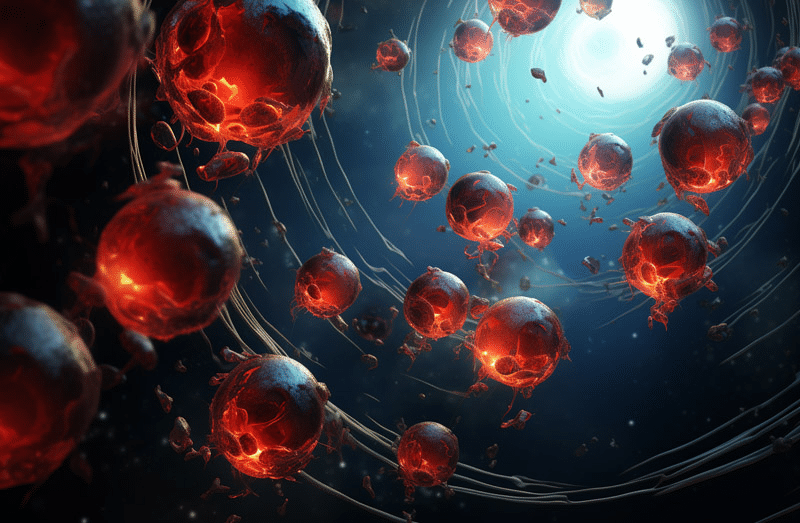
Stem cell therapy for meniscus tears holds significant importance in the realm of orthopedic medicine. This innovative approach taps into the body’s natural regenerative abilities, offering a potential solution for individuals grappling with meniscus injuries. The significance of this therapy lies in its capacity to promote healing and repair damaged knee tissues, potentially obviating the need for invasive surgical procedures.
Natural Regeneration: Stem cells have the unique ability to differentiate into various cell types including those essential for meniscus tissue repair. This natural regenerative process is crucial for restoring optimal knee function.
Minimally Invasive: Unlike traditional surgical interventions, stem cell therapy is often minimally invasive. This reduces the risks associated with surgery, accelerates recovery, and minimizes postoperative discomfort.
Preventing Further Damage: By addressing meniscus tears promptly, stem cell therapy may help prevent the progression of damage and deterioration in the knee joint. This is particularly significant for maintaining long-term joint health.
Reducing Inflammation: Stem cells possess anti-inflammatory properties, which can aid in reducing inflammation in the knee joint. This anti-inflammatory effect contributes to pain relief and supports the overall healing process.
Patient-Specific Treatment: Stem cell therapy can be tailored to the individual patient, considering factors such as age, overall health, and the extent of the meniscus injury. This personalized approach enhances treatment efficacy.
Long-Term Functional Improvement: The goal of stem cell therapy is not only to address the immediate injury but also to promote long-term functional improvement in the knee joint. This is crucial for restoring mobility and preventing future complications.
Avoidance of Surgery: For some patients, especially those with mild to moderate meniscus tears, stem cell therapy may offer an alternative to surgery. This is particularly beneficial for individuals looking to avoid the potential risks and extended recovery associated with surgical procedures.
Research Advancements: Ongoing research in stem cell therapy continues to refine techniques, improve outcomes, and expand its applicability. Staying abreast of these advancements ensures that patients receive the most effective and up-to-date treatments.
In essence, the significance of stem cell therapy for meniscus tears lies in its potential to revolutionize how knee injuries are treated, offering a regenerative path toward healing and improved joint function.
Causes and Symptoms of Meniscus Tears
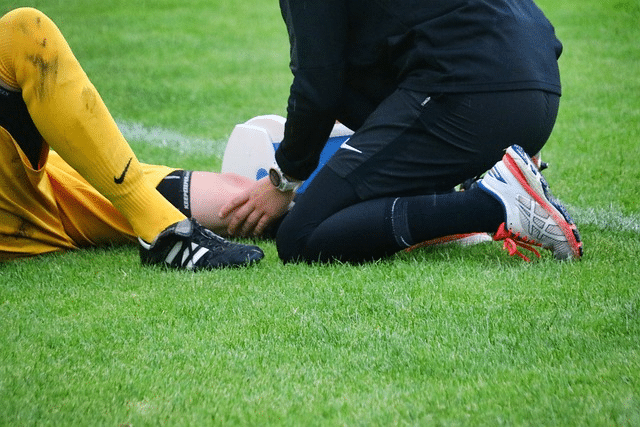
The meniscus, a C-shaped cartilage in the knee, plays a crucial role in maintaining joint stability and absorbing shock during movements. A meniscus tear occurs when this cartilage is damaged, often due to forceful twisting or sudden pivoting actions. Aging can also contribute to meniscus degeneration, making individuals more susceptible to tears.
Meniscus tears can result from sports-related activities, especially those involving sudden stops, twists, or turns. Degenerative changes associated with aging can also weaken the meniscus, making it prone to tearing. Common symptoms include pain, swelling, stiffness, and difficulty fully extending or bending the knee. Individuals may also experience sensations of locking or catching in the knee joint.
The meniscus consists of two crescent-shaped pads including the medial meniscus on the inner side and the lateral meniscus on the outer side. These structures act as cushions between the femur (thigh bone) and tibia (shin bone), providing stability and distributing load evenly across the knee joint.
Trauma and Sports Injuries
Trauma and sports injuries are common causes of meniscus tears. Forceful twisting motions, sudden stops, or direct impact to the knee during sports activities like soccer or basketball can lead to meniscus damage.
Athletes engaging in high-impact sports are particularly vulnerable to these injuries. Prompt medical evaluation is crucial for accurate diagnosis and appropriate treatment, often involving rest, ice, compression, and physical therapy.
Age-Related Degeneration
As individuals age, the meniscus undergoes degenerative changes, making it more susceptible to tears. Wear and tear over the years can weaken the meniscus, increasing the risk of injury. Age-related degeneration is a gradual process, and it can be a contributing factor to meniscus tears, maintaining joint health through exercise and a healthy lifestyle may help mitigate its impact.
Lifting or Squatting
Engaging in activities that involve heavy lifting or sudden, deep squatting can strain the knee joint, leading to meniscus tears. The stress placed on the knee during these movements can cause the meniscus to tear. Individuals involved in weightlifting or occupations that require repetitive squatting should be mindful of proper techniques and body mechanics to reduce the risk of injury.
Weakness and Imbalance
Muscle weakness and imbalance around the knee joint can contribute to meniscus tears. Weak quadriceps and hamstrings may alter joint mechanics, increasing the likelihood of injury. Strengthening exercises targeting the muscles surrounding the knee can play a preventive role in reducing the risk of meniscus tears.
Abnormal Knee Structure
Individuals with abnormal knee joint structures, such as irregular shapes or alignment issues, may be more prone to meniscus tears. Anomalies in the joint’s structure can create uneven stress on the meniscus, making it susceptible to damage. Addressing structural abnormalities may involve orthopedic interventions aimed at improving joint alignment.
Degenerative Changes
Pre-existing degenerative conditions such as osteoarthritis, contribute to degenerative changes in the meniscus. Osteoarthritis causes gradual deterioration of joint tissues including the meniscus. Managing osteoarthritis through lifestyle modifications, medication, and therapeutic interventions is essential in minimizing the impact on the meniscus and preventing tears.
The short-term high-dose release of connective tissue growth factor was proved to recruit stem cells to tear site and produce integrated fibrous matrix.
Benefits of Stem Cell for Meniscus Tear
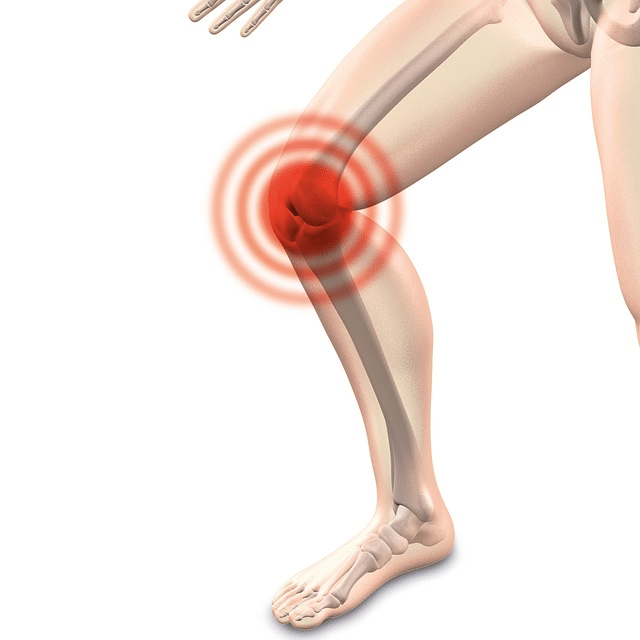
Regenerative Potential
Stem cell therapy harnesses the regenerative capabilities of mesenchymal stem cells (MSCs) to stimulate the repair and regeneration of damaged meniscal tissue.
Tissue Repair
Mesenchymal stem cells possess the ability to differentiate into various cell types including those found in the meniscus. This aids in the natural repair of torn or degenerated meniscal tissue.
Anti-Inflammatory Properties
Stem cells exhibit anti-inflammatory effects, helping to reduce the inflammatory response associated with meniscus tears. This can contribute to pain relief and improved joint function.
Minimally Invasive
Stem cell injections are typically administered through minimally invasive procedures, avoiding the need for extensive surgery. This reduces the risk of complications and promotes faster recovery.
Preservation of Meniscal Tissue
Stem cell therapy aims to preserve and restore the function of the meniscus, preventing the need for extensive removal (meniscectomy) and maintaining joint stability.
Long-Term Joint Health
By promoting natural healing processes, stem cell therapy contributes to long-term joint health. It addresses the root causes of meniscus tears, supporting sustained improvements.
Personalized Treatment
Stem cell therapy allows for a personalized approach, with the patient’s own stem cells often being used. This minimizes the risk of rejection and enhances the therapeutic benefits.
Reduced Pain
Stem cell therapy may help alleviate pain associated with meniscus tears by promoting healing and reducing inflammation. This can enhance overall comfort and joint function.
Potential to Delay or Avoid Surgery
In some cases, stem cell therapy may offer an alternative to surgical interventions, providing individuals with a non-surgical option for meniscus tear treatment.
Improved Functionality
Patients undergoing stem cell therapy for meniscus tears may experience improved joint functionality, increased range of motion, and a quicker return to daily activities.
Risks of Stem Cell for an Injured Meniscus

Infection Risk: Any injection procedure carries a potential risk of infection at the injection site. It’s crucial to follow sterile protocols during stem cell administration to minimize this risk.
Bleeding and Bruising: Some patients may experience minor bleeding or bruising at the injection site. This is generally temporary and resolves on its own, but individuals should be aware of these potential side effects.
Allergic Reactions: While using a patient’s own stem cells minimizes the risk of allergic reactions, there is still a small chance of adverse responses to other components used in the treatment process.
Pain at the Injection Site: Patients may experience temporary pain or discomfort at the site of the stem cell injection. This is typically mild and transient.
No Guarantee of Success: While stem cell therapy shows promise, it doesn’t guarantee success in every case. Individual responses to treatment may vary, and some patients may not experience the desired outcomes.
Tumor Formation: Although rare, there is a theoretical risk of tumor formation associated with stem cell therapy. Long-term studies are ongoing to assess the safety and efficacy of this treatment.
Vascular and Nerve Damage: In extremely rare cases, vascular or nerve damage may occur during the injection process. Careful and precise administration by trained professionals helps minimize this risk.
Unexpected Reactions: Stem cell therapy is still an evolving field, and unexpected reactions or side effects may emerge as more research is conducted. Patients should stay informed and discuss potential risks with their healthcare providers.
Regulatory Concerns: As with any innovative treatment, regulatory concerns may impact the availability and standardization of stem cell therapy. Patients should seek treatments from reputable and compliant healthcare providers.
Cost Considerations: Stem cell therapy may not be covered by insurance, leading to potential financial implications for patients. Understanding the cost and payment options is essential when considering this treatment.
Stem Cell for Meniscus Tear FAQs
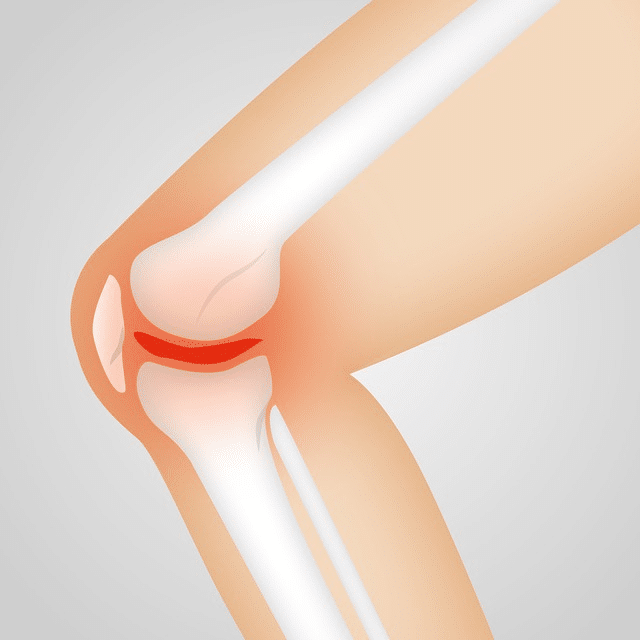
What is stem cell therapy for meniscus tears?
Stem cell therapy involves using the patient’s own stem cells to promote healing in the meniscus, a crucial cartilage structure in the knee. This regenerative approach aims to enhance natural repair processes.
Is stem cell therapy safe for meniscus tears?
Generally, stem cell therapy for meniscus tears is considered safe, especially when using the patient’s own cells. However, like any medical procedure, it carries some risks, and individuals should discuss these with their healthcare provider.
Does insurance cover stem cell therapy for meniscus tears?
In many cases, insurance does not cover the cost of stem cell therapy for meniscus tears, as it is often considered an elective and innovative procedure. Patients should check with their insurance provider for specific details.
What is a collagen meniscal implant?
A collagen meniscal implant is a biomaterial-based solution designed to address meniscus tears by providing structural support and promoting tissue regeneration.
Is a collagen meniscus implant suitable for all types of meniscus tears?
Collagen meniscus implants are generally suitable for a range of meniscus tears, but the suitability depends on the size, location, and severity of the tear.
What are derived stem cells in meniscus therapy?
Derived stem cells are specialized cells sourced from various tissues, often employed in stem cell therapy for meniscus tears to promote tissue repair and regeneration.
Why is articular cartilage crucial in stem cell therapy for meniscus tears?
Articular cartilage is vital for joint function, and addressing its health in stem cell therapy ensures a comprehensive approach to meniscus tear treatments.
How does meniscus tissue engineering contribute to advancements in stem cell therapy for meniscus tears?
Meniscus tissue engineering aims to revolutionize stem cell therapy by providing personalized solutions for heightened tissue repair and regeneration in meniscus tears.
Can Stem Cells Work for Your Meniscus Tear Injury?
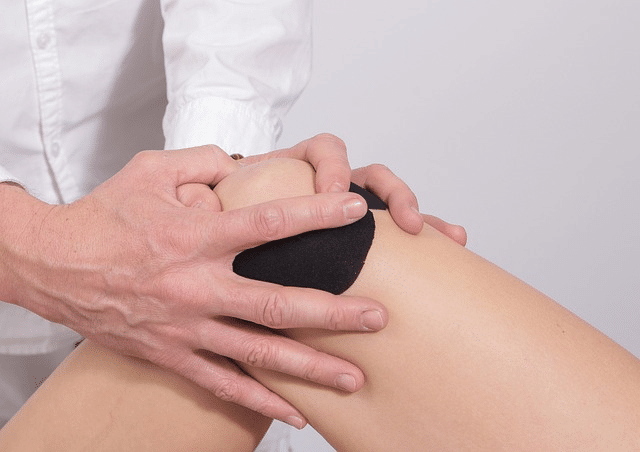
In summary, stem cell therapy for meniscus tears holds promise as an innovative, regenerative approach to address knee injuries. By leveraging the body’s natural healing mechanisms, this therapy aims to enhance recovery and restore knee functionality.
Ongoing research is refining our understanding of its effectiveness, emphasizing the need for informed decision-making and consultation with healthcare providers about meniscus repair and meniscus injuries. Patient selection is crucial for optimal outcomes when it comes to stem cell tissue regeneration. While stem cell therapy may not be universally applicable, it plays a significant role in orthopedic care.
As protocols evolve and long-term outcomes are scrutinized, staying informed about advancements is essential. Collaborative discussions with healthcare professionals, consideration of potential risks, and realistic expectations contribute to a well-informed decision-making process.
Stem cell therapy represents a hopeful intersection of regenerative medicine and orthopedics that offer prospects for improved outcomes in the healing journey for meniscus injuries
Book An Appointment With Stem Cells LA

Dealing with the discomfort of a meniscus tear and exploring non-surgical options for your meniscal injuries? Consider the potential benefits of stem cell therapy for meniscus tears. If you or a loved one is seeking a regenerative approach to address meniscus injuries, reach out to Stem Cell LA for a personalized consultation on meniscal regeneration stem cell treatments.
Discover how stem cell treatments can contribute to the healing process, potentially reducing pain and improving knee function. Take proactive steps toward recovery and explore the possibilities of regenerating your meniscus through innovative stem cell therapies.
Contact Information:
???? Call or Text: 310-281-6160
???? Visit Us:
1970 S. Prospect Ave. Suite 2
Redondo Beach, CA 90277
Discover a path to wellness – we’re here to assist you!


